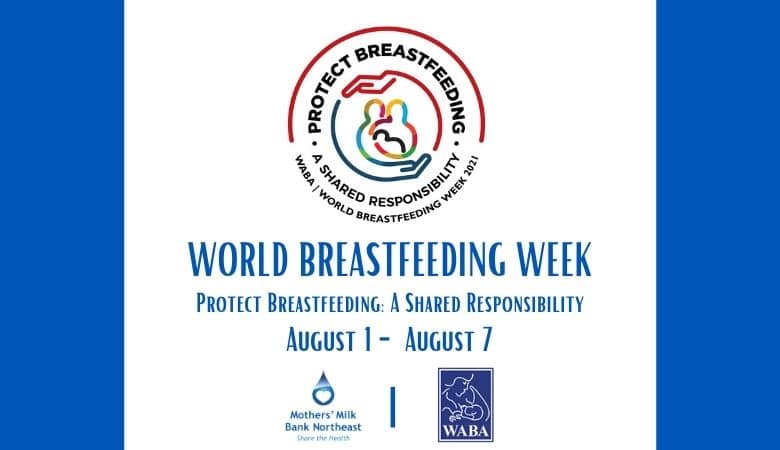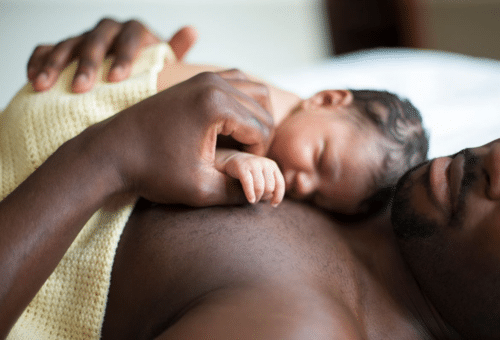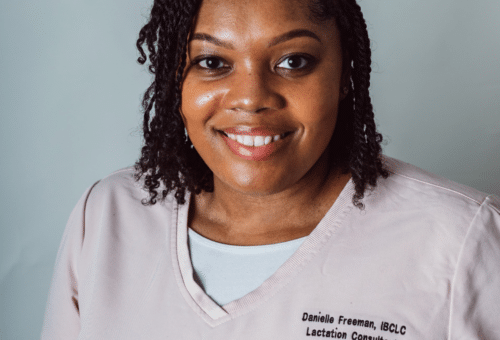For three decades the World Alliance for Breastfeeding Action (WABA) has united the world in protecting, promoting, and supporting breastfeeding. Among its many efforts is World Breastfeeding Week, filled with celebrations of breastfeeding. This year, we focus our attention on Protect Breastfeeding: A Shared Responsibility.
Breastfeeding (or not) touches the lives of every person who was, is, or will live on this planet. So whether we like it or not, whether we acknowledge it or not, breastfeeding is a shared responsibility. We all reap the benefits and suffer the losses of our actions in this foundational matter. Many stakeholders share in the responsibility to support breastfeeding:
Medical
In the US and other western societies, breastfeeding and infant feeding are treated largely as medical matters. We turn to those with medical training—physicians, nurses, lactation consultants—to answer our breastfeeding questions and concerns. Sometimes this is appropriate, but it also colors our experience of what breastfeeding is and is not. Western medicine is about pathology not health, disease not prevention. Medicine fixes something that is not working, whether that is an acute disease, a chronic illness, or a bone. The most important way the medical community can contribute to the shared responsibility of supporting breastfeeding is actively to help de-medicalize breastfeeding, to allow community and family to take center stage, to truly #normalizebreastfeeding.
Research
Research and medical best practice go hand in hand. Decades of research have demonstrated the clinical importance of human milk. The role of research in this shared responsibility and de-medicalization is to deepen our understanding of disparities in infant and maternal mortality and morbidity, breastfeeding initiation and duration, and the roles of other stakeholders in supporting breastfeeding.
Legislative
Legislation and adjudication are the tools any society uses to ensure fairness and equity in a world where these cannot be assumed. This has been true of breastfeeding for centuries. Contracts and laws regarding wet nurses date back to ancient Egypt and China. The Bible, Koran, Talmud, and other sacred texts include laws regarding rights and protections for nursing mothers and infants. In the US, laws supporting breastfeeding abound: the right to breastfeed in public; exemption from jury service; workplace break time to breastfeed or pump. There is still much need for better protections, such as universal paid parental leave and insurance coverage for doulas, lactation support, and donor milk, to name just a few. The guiding principle must be protection of the vulnerable and elimination of social disparities through equitable access and opportunity.
Workplace: Employers and Unions
Women in all stages of life have contributed to the financial well-being of their families. Until the Industrial Revolution, this most often occurred at or close to home, and child care was rolled into remunerative work, with support from extended family close by. Urbanization and industrialization changed our fundamental understanding of both family and work. Enter day care, breast pumps, and formula to “save the day.”
When work conditions became dangerous and pay scales untenable, unions formed to protect workers. This is still their role. The UN’s International Labor Organization was established in 1919, “to insure social justice through work.” Rights of expectant and new parents, including breastfeeding, have been a part of ILO’s mandate since its founding. US employers, workers, and unions have much to learn from ILO about supporting breastfeeding in the workplace.
Community Support
Grandparents, neighbors, friends, and faith communities live where breastfeeding lives—in the home, the family, the community. It behooves all of us who support breastfeeding professionally to remember that in our offices, hospitals, homes, and Zoom, we are guests in the places where breastfeeding lives every day. We are partners with family and community supporters, who know more about breastfeeding in their communities than we do.
Our tent is large and there is still room. Sharing ideas, information, strategies, mistakes, and successes, across states, countries, and professions, is the best way to share responsibility for breastfeeding support.









